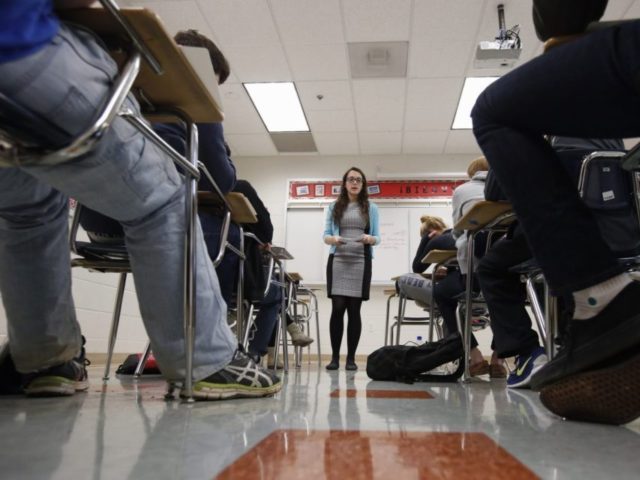A measure of long-term trends in the assessment of 13-year-olds’ reading and math achievement has revealed a statistically significant drop in scores over the past eight years, another outcome that points to the failure of the Common Core State Standards.
Heritage Foundation Center for Education Policy researchers Nick Storz and John Schoof observed the statistically significant decline in the scores over the past eight years is the first in the 50-year history of the National Assessment of Educational Progress’ 2020 Long-Term Trend Assessment.
“Despite record-high education spending, these declines are the latest evidence casting significant doubt on Common Core’s learning standards and approach to student improvement,” the researchers noted at the Daily Signal.
While the test scores of nine-year-olds showed improvement for two decades, current scores were found to yield no change since the test was administered in 2012.
Reading scores, however, for 13-year-olds dropped by three points, and math scores for students of the same age fell by five points.
Though high-performing 13-year-olds showed little to no decline in math scores between 2012 and 2020, struggling students of the same age showed significant drops in scores over the eight-year period.
“Students scoring in lower testing percentiles experienced the most distressing declines,” Storz and Schoof observed. “The math score of the median student dropped by five points, the 25th percentile fell by eight points, and the 10th percentile fell by a shocking 12 points.”
What the data reveal is that “13-year-old students scoring in the 10th percentile dropped more than the equivalent of a full grade year in math capabilities below where they were in 2012,” the researchers noted. “Black students and students in the 25th percentile were close behind.”
The scores of black students fell eight points and Hispanic students dropped four points, results that once again point to a widening achievement gap.
The devastating outcome follows a study released in April 2020 by the Boston-based Pioneer Institute, which found a historic drop in national reading and math scores among U.S. students since the adoption of the Obama-era Common Core State Standards a decade ago.
“Nearly a decade after states adopted Common Core, the empirical evidence makes it clear that these national standards have yielded underwhelming results for students,” said Pioneer Executive Director Jim Stergios in a statement at the time. “The proponents of this expensive, legally questionable policy initiative have much to answer for.”
The study, titled “The Common Core Debacle” and authored by education policy researcher Theodor Rebarber, asserted how the “shocking trends” in American student performance in critical math and reading skills since the creation of the U.S. Education Department 40 years ago should now call for a reevaluation of federal involvement in education.
Performance in reading and math since the adoption of Common Core has especially declined in the nation’s lowest-achieving students – many of whom come from low-income families and failing public schools – widening the achievement gap and creating further inequality.
Rebarber noted U.S. school children have suffered as a result of the poor-quality Common Core, yet another leftist education reform touted at the federal level:
Dissatisfied with the pace of improvement, most states were persuaded to set aside their own efforts for the promise of a single set of national curriculum standards: the Common Core. Substantive criticism of the national standards, especially by a group of scholars and experts associated with Pioneer Institute, found them not to be internationally competitive, weak on literary content, and based on misguided progressive instructional assumptions and dogmas. In response, Common Core proponents mostly circled the wagons and refused to address substantive criticism of the quality of the standards.
“The sustained decline we’re now seeing, especially among our most vulnerable students, simply cannot be allowed to continue,” Rebarber said at the time of the study.
“It’s time for federal law to change to allow states as well as local school districts to try a broader range of approaches to reform,” he added. “With a more bottom-up approach, more school systems will have the opportunity to choose curricula consistent with our international competitors and many decades of research on effective classroom teaching.”

COMMENTS
Please let us know if you're having issues with commenting.